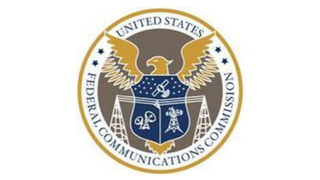FCC Seeks Public Comments on Blackout Reporting Requirements
The Notice of Proposed Rulemaking would provide the Commission with better data on the problem of blackouts and their impact on consumers

WASHINGTON, D.C.—The FCC has adopted a Notice of Proposed Rulemaking (NPR) on blackout reporting requirements and is asking for public comment on new rules that would require blackouts to be reported to the FCC.
The FCC action comes at a time when declines in pay TV subscribers and the increasingly perilous economics of pay TV video services have produced a wave of blackouts following failed retransmission consent agreements between local stations and MVPDs.
Currently MVPDs and broadcasters are not required to report these blackouts to the Commission, which the FCC said makes it difficult to the agency to address the issues.
The move would amend the Commission’s rules to require notification to the Commission when a blackout of a broadcast television station, or stations, occurs on a video programming service offered by a multichannel video programming distributor (MVPD) for 24 hours or more due to a breakdown in retransmission consent negotiations between broadcasters and MVPDs.
The FCC also noted that the proposed reporting framework would require public notice to the Commission of the beginning and resolution of any blackout and submission of information about the number of subscribers affected.
By requiring timely notification of broadcast station blackouts in a centralized, Commission-hosted database, these proposed reporting requirements would ensure that the Commission and public receive prompt and accurate information about critical MVPD service disruptions involving broadcast stations when they occur, the FCC said.
In response to the action, commissioner Nathan Simington issued a statement saying, “I approve this item, though I am skeptical of its tentative conclusion that the Commission has authority to enact the proposed reporting requirements under Section 632(b) of the Act. While there are other valid sources of authority for the reporting requirements this item proposes, Section 632(b) is a considerably narrower provision than recent Commission action suggests.”
Faced with a growing problem of blackouts, the FCC noted in the NPR that “Currently, neither broadcast stations nor MVPDs are under any obligation to report to the Commission MVPD service disruptions involving broadcast programming. Neither the Commission nor the public has a systematic method for learning of significant MVPD service disruptions involving broadcast programming.”
“Given the data discussed above, we are concerned about the increasing number and duration of broadcast station blackouts on MVPD platforms across the country and the Commission’s lack of ready access to basic information about such service disruptions,” the FCC added.
To provide it with information that would help it access the impact of these disruptions, the FCC said that “We therefore propose requiring MVPDs to notify the Commission of any blackouts of a broadcast station or stations that occur on their systems due to a loss of retransmission consent, and we seek comment on this proposal. Under this proposal, MVPDs would report incidents during which broadcast programming is disrupted for over 24 hours as a result of an inability to obtain a broadcast station’s consent to retransmit its signal.”
In the NPR it also said that “We seek comment on these understandings and this proposal. For example, are there circumstances in which the broadcaster, rather than the MVPD, removes the broadcast station(s) from the MVPD’s platform? Alternatively, we seek comment on whether we should impose the reporting obligation solely on broadcasters or impose a joint blackout reporting requirement on both MVPDs and broadcasters. Would adopting a broadcaster-only reporting requirement or imposing a joint reporting obligation on both MVPDs and broadcasters provide additional benefits to the public? Do broadcasters have access to different, additional, or more timely information about blackouts that would be beneficial for the public to see in real-time? If reporting obligations were the same for both parties, would the Commission need to address or attempt to resolve conflicting reports? Instead of requiring broadcasters to report blackouts, should we rely instead on broadcasters voluntarily providing additional information to supplement blackout notices submitted by MVPDs they believe contain inaccurate or incomplete information?”
As part of the effort, the FCC also said “To streamline reporting, we propose creating an online reporting portal, modeled after the Commission’s Network Outage Reporting System (NORS).”
More information is available here.
Get the TV Tech Newsletter
The professional video industry's #1 source for news, trends and product and tech information. Sign up below.
George Winslow is the senior content producer for TV Tech. He has written about the television, media and technology industries for nearly 30 years for such publications as Broadcasting & Cable, Multichannel News and TV Tech. Over the years, he has edited a number of magazines, including Multichannel News International and World Screen, and moderated panels at such major industry events as NAB and MIP TV. He has published two books and dozens of encyclopedia articles on such subjects as the media, New York City history and economics.

